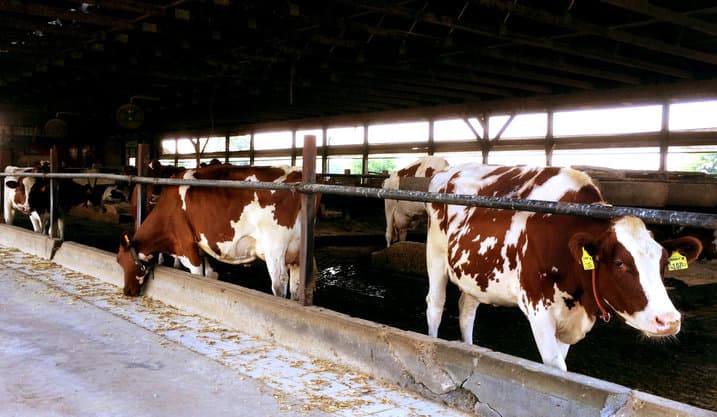UChicago-led studies ranked 1 and 2 in Clinical Research Forum's Top 10 for 2017

The Clinical Research Forum, a national organization of senior researchers and thought leaders from the nation's leading academic health centers, selected two studies headed by University of Chicago researchers as among the three best clinical research papers published in 2016.
These awards honor outstanding clinical research and identify major advances resulting from the nation's investment in improving the health of its citizens.
Ten award winners were chosen for their innovation and creativity, advancement of science in a specific area, contribution to understanding human disease or physiology, and potential impact upon the diagnosis, prevention and treatment of disease.
The Herbert Pardes Clinical Research Excellence Award is the Clinical Research Forum's highest honor. It is awarded to the research study that best exemplifies the spirit of the awards in that it shows a team science approach with a high degree of innovation and creativity, which advances science and has an impact upon human disease. The award comes with a cash prize of $5,000.
This year, the Pardes Award went to a team headed by geneticist Carole Ober, PhD, professor and chairman of human genetics at the University of Chicago, and immunologist Anne Sperling, PhD, associate professor of medicine at the University of Chicago.
Their study, "Innate Immunity and Asthma Risk in Amish and Hutterite Farm Children," was published Aug. 4, 2016, in the New England Journal of Medicine.
The interdisciplinary team of researchers showed that substances in the house dust from Amish, but not Hutterite, homes were able to engage and shape the innate immune system (the body's front-line response to most microbes) in young Amish, but not Hutterite, children in ways that appear to suppress pathologic responses leading to allergic asthma.
The Distinguished Clinical Research Achievement Awards are presented to the top two studies that demonstrate creativity, innovation, or a novel approach that demonstrates an immediate impact on the health and well-being of patients. These awards come with a cash prize of $3,500.
One of those awards goes to a team led by pulmonologist John P. Kress, MD, professor of medicine at the University of Chicago, and Bhakti Patel, MD, clinical instructor of medicine at the University.
Their study on the "Effect of Noninvasive Ventilation Delivered by Helmet vs Face Mask on the Rate of Endotracheal Intubation in Patients With Acute Respiratory Distress Syndrome: A Randomized Clinical Trial," was published May 15, 2016, in JAMA.
It showed that using a transparent, air-tight helmet instead of a face mask helps critically ill patients breathe better and can prevent them from needing a ventilator. Patients with helmet ventilation had better survival and spent less time in the intensive care unit.
The helmet "confers several advantages over the face mask," the authors note. It is less likely to leak. This enables the care team to increase air pressure into the helmet, which helps keep the airway and lungs open and improves oxygen levels. It is also more comfortable, easier to tolerate because it doesn't touch the face, and patients can see through it well enough to watch television, talk or read.
Award recipients were recognized at the Clinical Research Forum's sixth annual awards ceremony on April 18 at the National Press Club in Washington, D.C. Members of the research teams will visit congressional representatives on Capitol Hill on Wednesday, April 19, to brief officials on their findings and the critical and necessary role of federal funding for clinical research.
These studies reflect major work being conducted at nearly 60 research institutions and hospitals across the United States, as well as at partner institutions from around the world, according to the Clinical Research Forum.
"The 2017 awardees represent the enormous potential that properly funded research can have on patients and the public," said Harry P. Selker, MD, MSPH, Chairman of the CR Forum Board of Directors. "It is our hope that the significance of these projects and their outcomes can help educate the public, as well as elected officials, on the important impact of clinical research on human health."
About the Top 10 Clinical Research Achievement Awards
Recognizing the need to celebrate our nation's clinical research accomplishments that involve both innovation and impact on human disease, the Clinical Research Forum conducts an annual competition to determine the ten outstanding research accomplishments in the United States. These major research advances represent a portion of the annual return on the nation's investment in the health and future welfare of its citizens.
About the Clinical Research Forum
The mission of the Clinical Research Forum is to provide leadership to the national and clinical translational research enterprise and promote understanding and support for clinical research and its impact on health and healthcare. For more information, visit www.clinicalresearchforum.org.
The National Institutes of Health, the St. Vincent Foundation and the American Academy of Allergy, Asthma & Immunology Foundation supported the asthma study. Additional authors were Michelle Stein, Cara Hrusch, Catherine Igartua and Jack Gilbert from the University of Chicago; Donata Vercelli, Justyna Gozdz, Vadim Pivniouk, Julie Ledford, Mauricius Marques dos Santos, Julia Neilson, Sean Murray, Raina Maier and Fernando Martinez from the University of Arizona; Erika von Mutius of the Dr. von Hauner Children Hospital in Munich, Germany; Nervana Metwali and Peter Thorne from the University of Iowa; and Mark Holbreich, an allergist-immunologist in Indianapolis, Indiana. Funding for the helmet study was supplied by the National Heart Lung and Blood Institute. The helmets were purchased using funds from an unrestricted grant from the Daniel J. Edelman family. Additional authors were Krysta Wolfe, Anne Pohlman and Jesse Hall, all from the University of Chicago.

